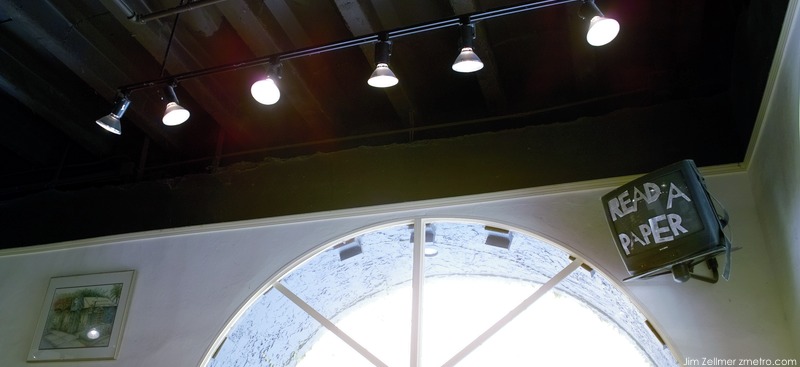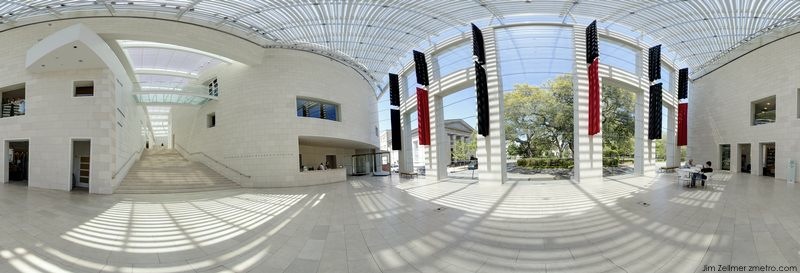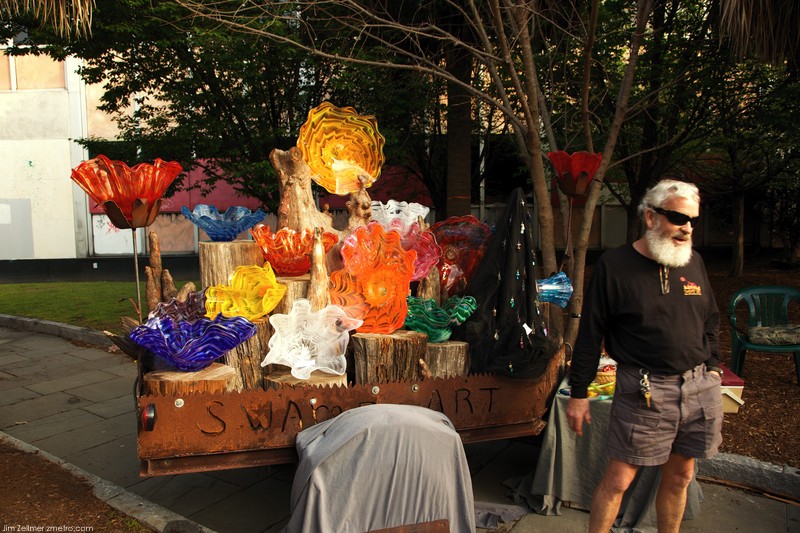That is why it was all the more bewildering to have Sen. Dodd come to the gymnasium of the Cornwall Consolidated School on a beautiful spring afternoon for two hours and somehow manage not to utter a single word about the controversies surrounding his role as chairman of the Senate Banking Committee.
These are not exactly state secrets. There was the widely reported sweetheart or VIP mortgage loan from Countrywide Financial to the senator as well as the six-figure campaign contributions from the American Insurance Group whose executives, according to language Sen. Dodd wrote into a bailout bill, were entitled to large bonuses paid for with our tax dollars.
The organizer and moderator of Saturday’s forum, Harriet Dorsen, a member of the local Democratic Party committee, told the Lakeville Journal newspaper last week, “I think there are going to be a lot of tough questions.”
There weren’t. They were all softballs. Instead of the usual give and take, with citizens speaking their minds, all the questions had to be written out in advance on index cards and then submitted to the moderators. A contingent from the Lakeville Journal (including my wife, Cynthia, who is the newspaper’s executive editor) was on hand, armed with probing questions.
Category: Culture
Scenes: “Read a Paper” – and Turn off the TV

A useful idea, from a bookstore south of the Mason Dixon line. I’d substitute “book, or perhaps ebook” for “paper”.
VR Scene: Jepson Center for the Arts Savannah

On China’s Flying Culture
My trip was significantly less copacetic – due to “fog” (read: noxious pollution) at Pudong no planes were landing. Our evening flight was cancelled, and the the next day’s flight delayed three or four hours. We ended up circling in Shanghai, landing in Hangzhou first, deplaning, and only later flying back to Shanghai. Total trip time: 23 hours.
I observed in my flight mates a similar kind of resignation that you saw – but I don’t think it is due to any sort of calmness. Instead I saw a powerlessness in front of authority. Again and again people on the plane turned to me and asked me to call my embassy – saying “they will pay attention to you. But they don’t care about us Chinese”. One passenger (shanghainese) demanded that they hurry us to Shanghai because we had so many foreigners on the plane, and it was a major loss of face for China. The awareness and sensitivity to the poor treatment of local travelers reached a fever pitch when the biscuits and water came to us as we cooled our heels in Hangzhou. One passenger erupted in fury “Where did that Japanese tour group go? Have you given them better food? Have you given them *noodles*? How dare you!”
(The gate attendant’s response is a topic for a whole other post. She, a young and pretty woman with trendy heavy glasses and a bejeweled mobile phone, turned to the angry passenger and said “of course we haven’t given the Japanese noodles! We will never forget the Nanjing Massacre!”….)
Indian Mother in Record Chilli Attempt
BBC:
An Indian mother is set for an entry into the Guinness World Records after eating 51 of the world’s hottest chilli in two minutes.
Anandita Dutta Tamuly, 26, gobbled up the “ghost chillis” in front of visiting British chef Gordon Ramsay in the north-eastern state of Assam.
Ms Tamuly told Associated Press she “felt terrible” – because she had managed 60 in an earlier local event.
Mr Ramsay tried a chilli but said “it’s too much” and pleaded for water.
He is in Assam for a television shoot of a global food series.
Swamp Art
Why Sourdough is the Best Bread
San Francisco’s food scene is probably the most vibrant in the Americas. Whether they’re starting trends or perfecting them, Bay Area chefs have long been among the world’s most creative. But amidst all the innovation, there has been one faithful and beloved constant on the city’s many tables: sourdough bread.
It’s hard to find someone who doesn’t like sourdough, but even rarer are people who know what makes it so distinctive. It’s often thought to be a flavouring, or perhaps a baking technique, something pioneered in Gold Rush-era San Francisco. In fact, sourdough is simply bread in which the rise comes not from a package of shop-bought yeast, but from wild yeast that is in the air everywhere.
As the original leavened bread – all bread was “sourdough” until Louis Pasteur’s germ theory led to packaged yeast – sourdough has a long and storied past. But as a let-them-eat-cake epoch gives way to home pleasures and the local food movement, sourdough is equally suited to our own times. Classic, inexpensive and uniquely local, sourdough is as fascinating to kids and novices as it is to practiced bakers and mad scientists of all ages.
Sourdough is an ancient art, but with just two ingredients its simplicity is as remarkable as its heritage. Flour and water are mixed and left to stand on a windowsill or kitchen counter. In a matter of days wild yeast take over and the mixture begins to froth and bubble with life. If you’ve ever wondered at the origins of this or that cooking method – “who on Earth thought to try this?” – sourdough is that rare thing, a miraculous culinary phenomenon that won’t give you that feeling. With yeast naturally in the air, it’s easy to imagine how an afternoon’s forgetfulness in ancient Egypt led to the invention of leavened bread.
McCain in Hong Kong & Vietnam
His performance in Vietnam was particularly intriguing. He knows the country well and is treated almost as a celebrity – a reflection of both the quirks of history, and his moral and political courage, qualities that helped propel his White House run.
Senator McCain spent five years as a prisoner of war in Hanoi at the height of the Vietnam conflict, having been shot down and crashing his jet fighter into a lake on the edge of the capital. His vivid descriptions of being tortured – he refused offers of early release as the son of a leading admiral – did not stop his efforts years later. He not only returned to enemy territory but, as a prominent and hawkish Republican, played a key role through the late 1980s and 1990s in America’s long delayed reconciliation and normalisation with its victorious opponent.
In his political twilight, Senator McCain could be forgiven for resting easy during his first return to the Vietnamese capital in five years. Despite political and social differences, the two countries are open to trade and investment, and have taken the first steps to a military relationship – a pipe dream just a decade ago.
He remains restless, however. In a speech to the country’s diplomatic academy, he passionately urged both nations to get even closer. “Today, the hardest work of normalisation is behind us. The time has come, I believe, for us to move from the normalisation of our ties commensurate with Vietnam’s rising status in the region and the world. We should not simply rest on our laurels and allow the relationship to plateau. It is time to take the next step.”
Good Friday Links
Pirates and the CIA: What would Thomas Jefferson have done?
“It was the sixth such attack this week and one of 66 this year by Somali pirates, a collection of shrewd businessmen and daring opportunists who have pulled off a series of spectacular seizures using high- and low-tech gear, from satellite phones and rocket-propelled grenades to battered wooden skiffs and rickety ladders,” the Washington Post reported today about the attack on a U.S.-operated container ship. “In the past year, their booty has included the MV Faina, a Ukrainian ship loaded with tanks and antiaircraft guns, and the MV Sirius Star, a 300,000-ton, 1,000-foot-long Saudi oil tanker that is the largest ship to be seized in history.”
For months, a former senior CIA officer has been telling me that pirate activity off Somalia was a problem that needed to be aggressively dealt with. By chance, I had a meeting with him yesterday as the Maersk Alabama hijacking was unfolding. Here’s what he had to say (he updated his remarks today):
The American response to date has been incredibly naïve and woefully ineffective. Now, predictably, you have an American taken hostage. All of which should have been prevented. You’ve got a failed state in Somalia and pirates operating in an area of ocean that is larger than the state of Texas but we’ve been trying to deal with this from the ocean side, by sending the navy and with a limited application of technology, such as satellites and drones. We can’t afford to patrol that big a piece of the ocean; it’s too expensive to leave a naval task force out there.
